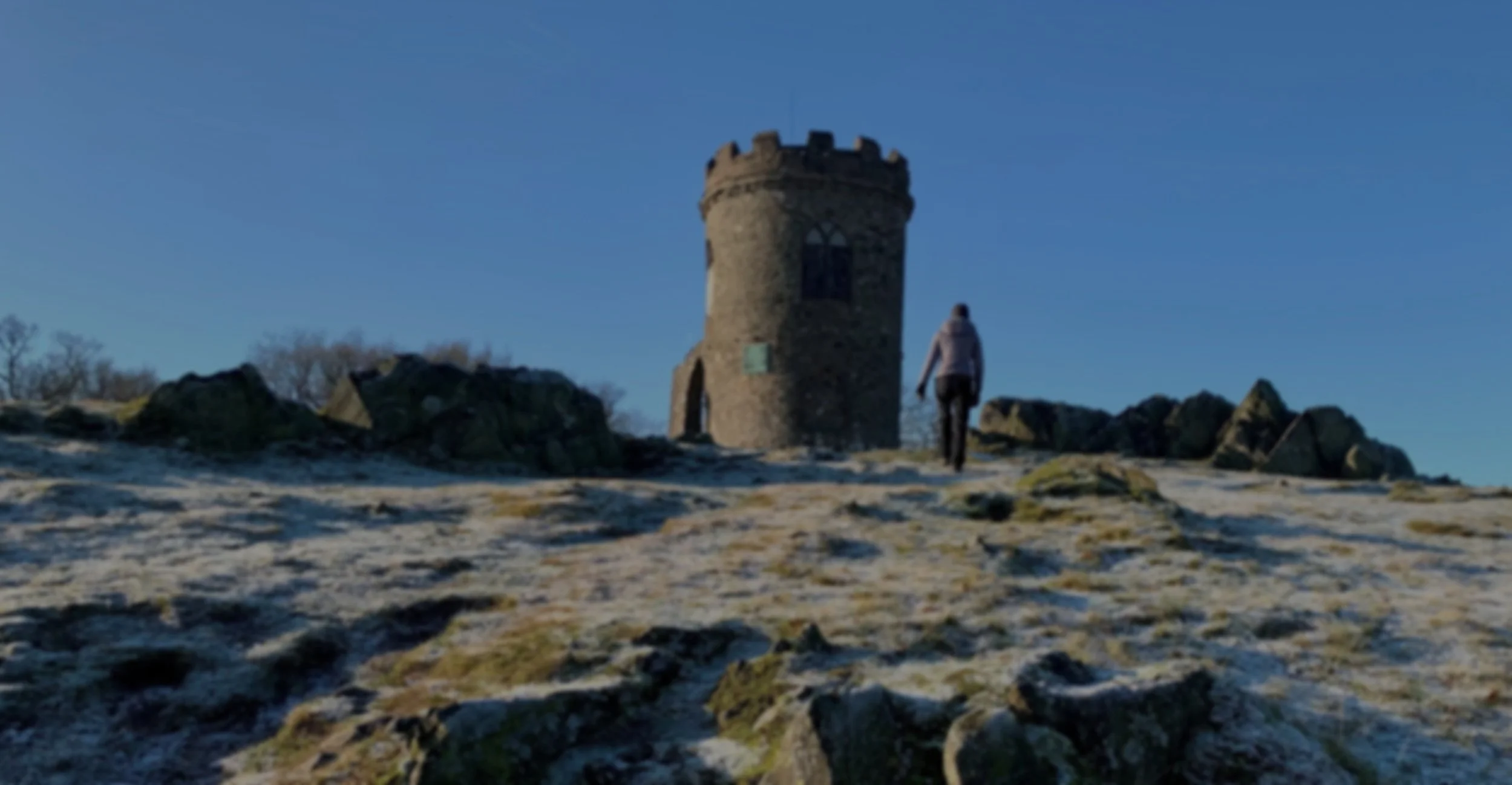This is a really helpful suggestion.
Today’s norms of responsiveness are ridiculous. We shouldn’t apologize for failing to meet them.
I have now stopped apologising for any delay i perceive in responding to emails and calls. I am retired and volunteer. Whilst I don’t want to deliberately cause any problems through my timelines, I also want to know when I have a day or week off I don’t have to be checking and responding to email and connecting. However, I haven’t quite reached the point I don’t check emails on days out as some of my timelines are time sensitive. But in due course I will achieve that moment too… where is I am unavailable I am actually not going to respond!
Our 2022 Blog series takes to video to keep things fresh.
This is our Featured Post. Stay in touch!
This is a question I have been asking myself for-nearly 25 years.
However just before Christmas 2021 there was a specific lack of response from the government in the financial package to help with latest Covid Plan B restrictions which excluded the leisure sector, but included hospitality pubs and restaurants.
The sector has warned of the consequences for gyms and leisure services.
Schools have warned about the late notice for secured funding for SGOs and the Pupil Premium.
Local authorities continually highlight the impact of leisure spending on communities.
So why don’t government understand the sector. What do they understand and what have we been doing wrong all this time?
Each year I write that I am not really a big fan of New Year pledges, but then find myself slipping into using the moment to pivot parts of my life. For many it will be a post Christmas diet or joining a gym or learning a new language and booking the trip of a lifetime.
Sadly the last couple of years with Covid has taught us not to perhaps plan too far ahead.
As you will see from my 4000 Weeks Blog, I have already started to realign my life around the prospect of being fully retired and using my weeks ‘wisely’
So this means I will be stopping some things!
I have been trying to write this blog for about a month, which means another 4 of my possible 1500 weeks left have passed.
I have already written extensively about the need for seasons in life. As many regulars will know I have been planning for this next season for some time - hitting 55 and ‘retiring’. Naturally that R word has caused much debate and reflection. I think we all agreed it is the wrong word to describe this next decade.
As the UK Government commences its Spending Review 2021, the Sport for Development Coalition is calling on Chancellor Rishi Sunak to capitalise on sport’s potential as a ‘team player’ in levelling up communities, tackling deprivation and building back better from Covid-19.
Targeted interventions across the Coalition’s UK-wide network produce cost savings and multiple returns on investment, from sustaining mental health and wellbeing and increasing employability and skills, to reducing crime and anti-social behaviour.
At the start of the SajeImpact journey the idea was always to have a wide portfolio of work and projects. Being an MP meant being involved in so many aspects of life that going back to a normal job or single industry was always going to be tough. So we set out to maintain a wide range of interests in sport, physical activity, wellbeing, faith, volunteering, economic regeneration, tackling inequality and international development.
Over the last decade we have found a way to keep involved in most aspects of these policy areas but leadership roles in sport and physical activity pulled me deeper and deeper into the slio! I tried to resist but the specialism I have developed around sport policy is infectious. I am not leaving sport as I retire - rather I am really trying to maintain a healthy balance. My time with the Local LEP has been really important and maintaining a systems approach to most of the issues I want to tackle across Leicestershire - poverty, inequality, physical activity and strong communities.
But i had started to lose links into national issues on other subjects after I left the Board of WorldVision in 2018. I was therefore delighted when approached to help on the case against Assisted Suicide in Parliament. It takes me far from my sport comfort zone but utilises my skill set around building relationships and campaigning on social issues.
The issue of Assisted Suicide is extremely sensitive and of course we all respect the different views being taken. There are very few simple solutions that satisfy everybody.
I am looking forward to working with former colleagues again in both House of Parliament. I will be updating my social media and this website with News and views over the rest of 2021. I may even get back into visits to Parliament!
The idea of the '20-minute neighbourhood' (also known as 15-minute cities) has grown with interest around the world, especially since the COVID-19 pandemic put a spotlight on the importance of the liveability of where we live.
Another way of describing a complete, compact and connected neighbourhood, where people can meet their everyday needs within a short walk or cycle, the idea of the 20-minute neighbourhood presents multiple benefits including boosting local economies, improving people’s health and wellbeing, increasing social connections in communities, and tackling climate change.
The TCPA with Sport England have been working with partners including Sustrans, Design Council, Fields in Trust, CLES and others to look at how the idea could be introduced in the context of the English planning system.
Produced in collaboration, this introductory guidance document on the 20-minute neighbourhood is for local planning authorities and outlines a set of principles for success with case studies from across England.
“Ask yourself how to be a leader for the health of the population you serve, not just the health care.” Sir Michael Marmot, Professor of Epidemiology and Public Health talks to Professor Donna Hall, Chair of New Local, about how inequality shapes our health – and what we can do to fix it. This panel is part of Stronger Things 2021 - the place to talk about communities making a difference. Find out more and watch all videos: https://www.newlocal.org.uk/strongert... Tweets from this panel: https://twitter.com/i/events/13704116...
SHOW LESS
I have always been keen to share good content. Why rewrite stuff when good examples exist?
I have got to know Catherine at Sportbeydond and this short blog - like many of her others - is a great summary of strategy! In fact strategy is quite simple really. Some people try to overcomplicate it,
Building and implementing a strategy
The Sport England fund has transformed the way the organisation has been working.
Have a look at the details. The fund exists to help reduce the negative impact of Covid and the widening of inequalities in sport and physical activity
Details
What do we mean by innovation? I think it is like strategy as one of the most overused words in my circles.
It is a genuine question because every time i get involved in a session/ Board/ discussion it seems everybody in the room has a differing idea!
I have been on my own journey in sports policy over the last 20 years. Today the partnership we have announced with David Morley Architects to focus on Active Environments feels like another significant moment in taking a wider understanding of sport, physical activity and movement.
We know most of our supporters have been in what we might call the traditional sport and then wider physical activity sector. When I was in Parliament I was keen to raise the issue of physical activity - but probably more in the context of a public health issue. Since we worked closely on the Designed to Move campaign - which called for just 2 interventions around our physical environment and making children's experience of sport and physical activity fun and engaging - we have been trying to widen the debate in the sector to understand the interventions that work to get people moving. Its a tough message but these aren't always about sport, leisure and gym sector. As the Report from ISPAH has shown there are eight interventions that work and only 1-2 are inside our normal definition of the sport and physical activity sector.
A whole systems approach to decreasing the levels of inactivity in the UK will require us to get outside our normal conversations and into a wider eco-system we will find uncomfortable. At the launch of the Sport England strategy a poll was taken as to which of the priorities was the most important. Active Environments came last I believe. This is why we are really determined and excited by this new collaboration because we need the sector to understand what we mean, what active environments can and will deliver for activity. Of course we understand these discussions are uncomfortable. It takes us further away from our understanding of 'sport' But if we don't embrace this new systems approach we are denying ourselves an opportunity to be part of the solution.
Active Environments covers a facilities strategy so this is plenty of opportunity to shape this part of any growth, but this needs to be done in conjunction with a wider understanding of where and how people move. Big shiny facilities are nice for many of us but who do they serve? If the Sport England strategic direction is to tackle inequalities this will mean even with facility development we need to approach things differently.
This is the time - as we head into a period of rebuilding after Covid - to grasp these opportunities to really do things differently and to think about our local environment in a completely different way. It has taken 40-50 years to design activity out of our lives. It will take time to turn around decades of policy designed around the car. But we have to start somewhere. And it feels a post Covid world gives a chance to do just that! Making a healthy start.
So we have a new 10 year strategy for Sport England and endorsed by the Sports Minister at DCMS. But as we all know with a strategy launch this is just the beginning.
Firstly I would put down a marker to say I am deeply impressed by the process of the development of the strategy (despite its delayed start due to a General Election and the onslaught of a Pandemic on the sector). As I tweeted yesterday none of the strategy was a surprise because the process had been open, honest and transparent. The end product is what you could see on the website for the last few weeks around the key themes!
Secondly it's great it is an evolution of the current direction of travel since the Sporting Futures strategy and thankfully aimed at a 10 year timeframe. At last! However, the prospect of governments (or Ministers) changing affects how sure we are of a 10 year strategy being possible in reality. Fingers crossed. But that is part of our job to show to politicians and government it is right, its working and to build on success not tear down and start again. I have always been realistic that it is hard to convince a newly appointed Minister not to do anything or 'something'. You get 2.3 years on average. You want to make a mark. Who wouldn't? We need to show the overall direction doesn't need switching back and forth as we have for the last 20 years.
There are plenty of opportunities over the coming period of consultation to develop the business plan to dive into aspects of the strategy which we really like and other areas where there is clearly still room for work to be done (Measuring the impact springs to mind)
However, we are also very keen on developing the delivery mechanisms of the strategy. As recent research has highlighted there have been some 14 Obesity Strategies in the UK over the last 30 years containing 698 policies. I think we could all agree they have not been universally successful. We would argue this has been a result of a number of factors including the timidity of successive governments to tackle the vested interests, to avoid been seen as the 'Nanny State' as well as the strategy launch being seen by too many at the heart of government as 'job done'
We know full well that the team at Sport England really understand this and there will be further changes in culture, approach and organisation as the strategy is rolled out. But it won't be easy. It seems from reaction that most people welcomed the launch. But there are some tough choices ahead and when some of these impact on funding levels for those who may have been used to the old approach some of that support could slip away quickly. Those of us who support the central themes of this strategy need to support its implementation even when the going gets tough.
Now we have another period of detailed check and challenge and consultation as the Business Plan is developed, why not share your thoughts, aspirations and fears with us? We exist to help create a space for healthy and constructive dialogue. Let us know your initial reactions and how you will be working differently.
This strategy does build on a direction of travel away from purely delivering 'sport' in its traditional sense. Many of our supporters have questioned whether 'Sport England' is still the right title. We know this journey. Our own name of the Sports Think Tank doesn't really convey the breadth of our own interest in wider policies of physical activity. movement, wellbeing and health inequalities. But we think it's more important to spend time and energy on tackling this issues and not navel gazing on a name. if we ever get a breathing space we might consider a re brand but in the meantime we will concentrate on the issues!
The Health Foundation Report - Using economic development to improve health and reduce health inequalities - landed just at the right time. I have committed myself in 2021 through SajeImpact to continue to tackle poverty and inequality in my areas of greatest interest - economic regeneration, sport and physical activity and general wellbeing.
This report sums up for me a wide range of the hundreds of thoughts that have been racing through my mind about what that might look like in practise. It makes sense of them. It makes the correct link how a healthy populations depends on more than the healthcare available to them - it is shaped by social, econmmic, commercail and evironmental condsiotins in whish people live. Alongside the recent Marmot report it highlights that the last decade have seen massive health inequlaties reninforced and amongst the porrest life expaceancy stagnate and decraese. At its simplest level the report reinforces the point that economci developemt has to be about creating an inclusive economy. Whilst I have raised this I certainly know I need to do more in this area.






















